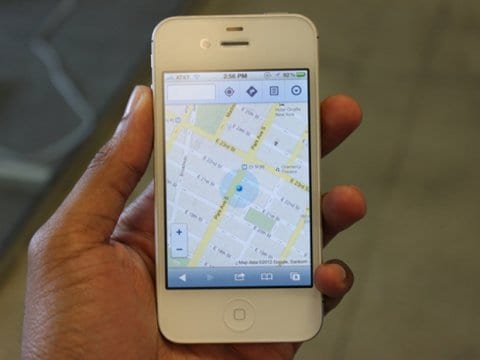

For years, if you asked BlackBerry faithful about the massive advantage Apple had in the app ecosystem they would say the same thing:
“You don’t need an app if your browser works properly.”
By “properly”, of course, they meant ran Flash. Steve Jobs famously banned the proprietary technology that had become the defacto standard for animation and video for websites from all iOS devices after a spat with Adobe. Jobs even published a mini-manifesto on the Apple website, explaining that he didn’t “want to reduce the reliability and security of our iPhones, iPods, and iPads by adding Flash.”
The irony was that until BlackBerry 10 devices hit the market this year, that company’s mobile browser was nothing to write home about, sending many to the Opera browser, which supported Flash with a plugin.
Today, however, there is a follow-on development in this story, and it involves neither of the aforementioned companies.
Yahoo has acquired struggling startup Rockmelt. Rockmelt, which had described itself as a “social browser”, because it integrated Facebook, Twitter and chat feeds into the user interface, had raised more than $40 million from investors such as Andreessen Horowitz, Accel Partners, and Khosla Ventures.
But the browser never really took off, and in 2011 the company reinvented itself as a sort of news app-browser hybrid. But, unlike Flipboard, which it came to resemble, the new Rockmelt never really took off as a standalone app.
Yahoo says Rockmelt will no longer be an app, it will integrated into its overall platform and experience.
The language of Yahoo’s press release regarding the acquisition is vague, but this would seem to be a material event in a development that some have expected would begin to happen right about now; the death of the app.
Tech writer Danish Mujeeb says the shift from stand alone apps to a more tightly integrated user interface is inevitable.
“On the desktop it felt like the shift from apps to web took five years, I expect the same for smartphones, if not less,” he wrote on his own blog last November.
Mujeeb placed pictures of the Google Maps app against the mobile website, noting that both looked like apps.
“Even now,” he added, “a cleverly designed web site will render beautifully on all platforms. A lot of so called “apps” are actually web pages packaged as apps. With the web platform maturing and with cellular data speed improving, I don’t see why one would actually need to develop an installable app to give a great user experience. Moreover, I hate filling up my Android phone with apps that just slow my phone down.”
Three years ago, Wired Magazine was forecasting the death of the web, but that thinking already seems precious and antiquated. Last year, the oft-repeated mantra came from Alex Schleifer, GM of the Media Lab at SAY Media, who said “If it can be done on the Web, build it for the Web; if it can’t, build an app.”
In 2013, it turns out that most every mobile experience can be built for the web, and that trend is spiraling. Is 2014 the years apps begin a long, slow decline?
Comment
Leave a Reply
You must be logged in to post a comment.



 Share
Share Tweet
Tweet Share
Share




just another sad BB10 justification plea, how is that turn by turn voice on the web map…..
Until data pricing drops the app vs web is a slam dunk for apps. BlackBerry 10 has shown just how barren a landscape is when the developers are not embracing web apps.